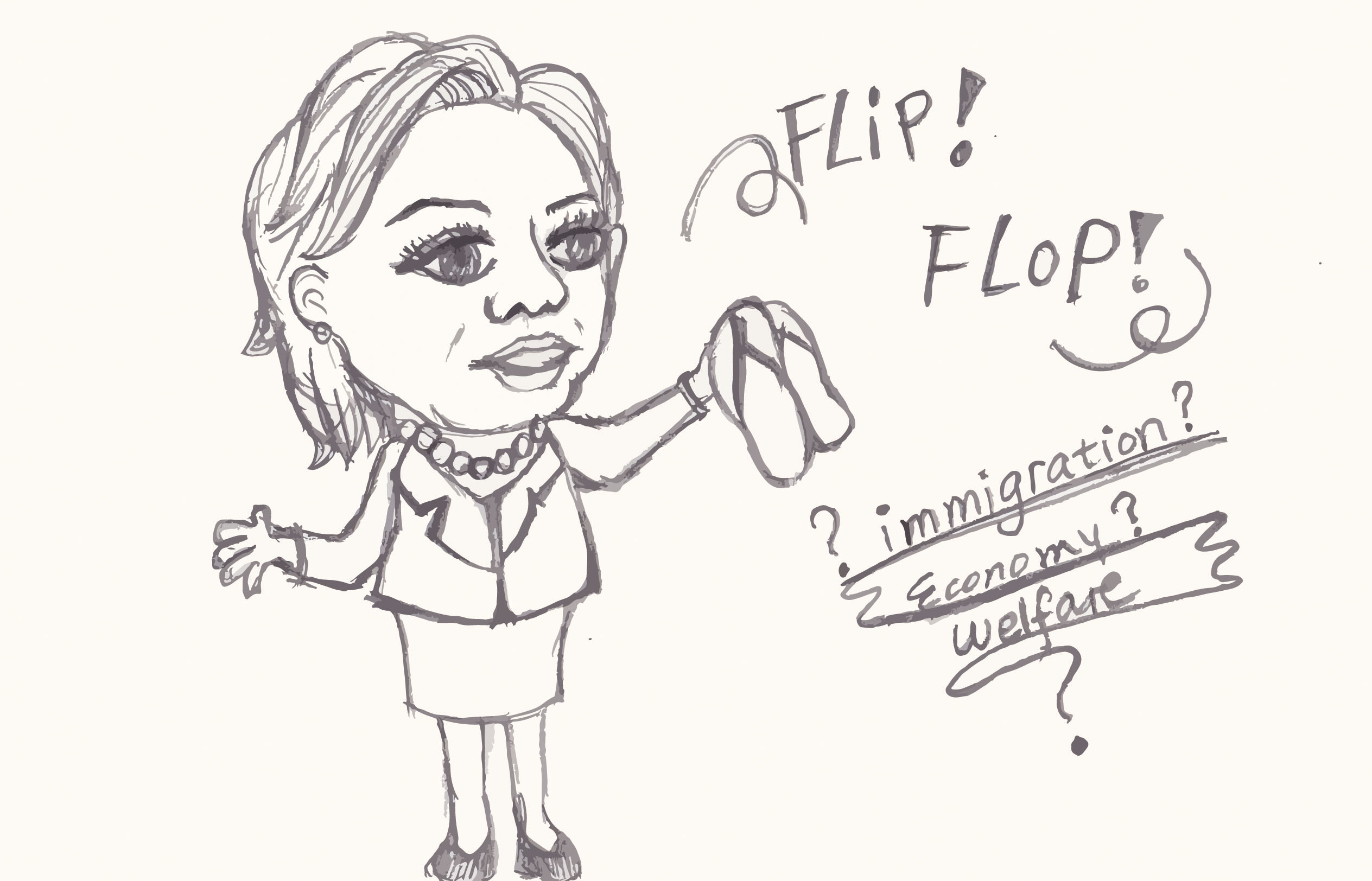Andrew Urena
Do we demonize progression and evolution? No. Then why would we do it to our leaders? Recently, Hillary Clinton defined her stance on immigration, promising, if elected, to legalize additional immigrants and expand on Obama’s measures to reform immigration policy. With this statement following the kick-off to her 2016 campaign, Clinton faced harsh criticism from detractors. Critics have dismissed her leadership ability and accused her of flip-flopping and being unclear and indirect on issues. They’ve turned, in one instance, to a quote she gave on the John Gambling Radio Show in 2003, where she said, “We’ve got to do several things and I am, you know, adamantly against illegal immigrants.”
But this calls into question the larger issue: should we penalize politicians for embracing better judgement and reevaluating their opinions? Admittedly, Clinton’s prior stance was genuinely bad, and aligned her with a misguided agenda that would have alienated many people and undermined economic stability in industries that are dependent on immigrant labor.
But we know better now. She knows better now. We shouldn’t criticize her for taking a progressive position on an issue, but increasingly we are. Somewhere along the line, we have developed a cynicism toward politics. Americans hold politicians in a catch-22: we like reform, but dislike the process of politicians evolving their opinions. We convince ourselves that politicians are disingenuous, and flip-flop on issues purely out of political motivations or career aspirations. While some, if not many, do, we must continue to question ourselves if we’re attacking politicians for having the right reasons. We should not, however, vilify leaders who take a brave step toward reconsidering an issue.
We need to open up a genuine dialogue for finding a solution to the issue of politicians changing their stance out of political motivation, and recognize genuine desire to do what’s best for the country.
We have a few ways to approach this: First, we can strip the nastiness away from the term ‘flip-flopping” and quit the name-calling. Instead, we can redefine these actions as policy reevaluations. If we do that, we shift the focus away from the politicians and toward the issues.
Next, we hold politicians accountable for their policy shifts. Since most have congressional backgrounds, we can compare public statements and congressional voting records to see how politicians evolve their opinions based on their campaign promises, allowing voters to see if a politician is prone to breaking promises.
Finally, we consult the experts. Those who have a sophisticated understanding of an issue—like economists, professors, and senior officials—are more than willing to offer their opinions on policy issues. Whether it’s citing the importance of immigrant labor to economic growth, or advocating diplomatic resolutions in the Middle East in order to help prevent the rise of hostile anti-American groups, we need to value politicians who consult and reflect expert opinion in their policy decisions. Regardless of how we feel toward a policy shift, we must examine their decision alongside what experts call the best policy.
While we battle over immigration, welfare, and the direction of the economy, we cannot forget that the political climate is constantly changing. We need to support leaders who aren’t afraid to go against previous statements put forward in a different political and economic atmosphere. While we continue to progress, we need to push our leaders to constantly be evaluating public policy decisions. At times, we’re all wrong, but we need to value the quality of continuing to try and get it right.











